[caption id="attachment_931" align="alignleft" width="404"]
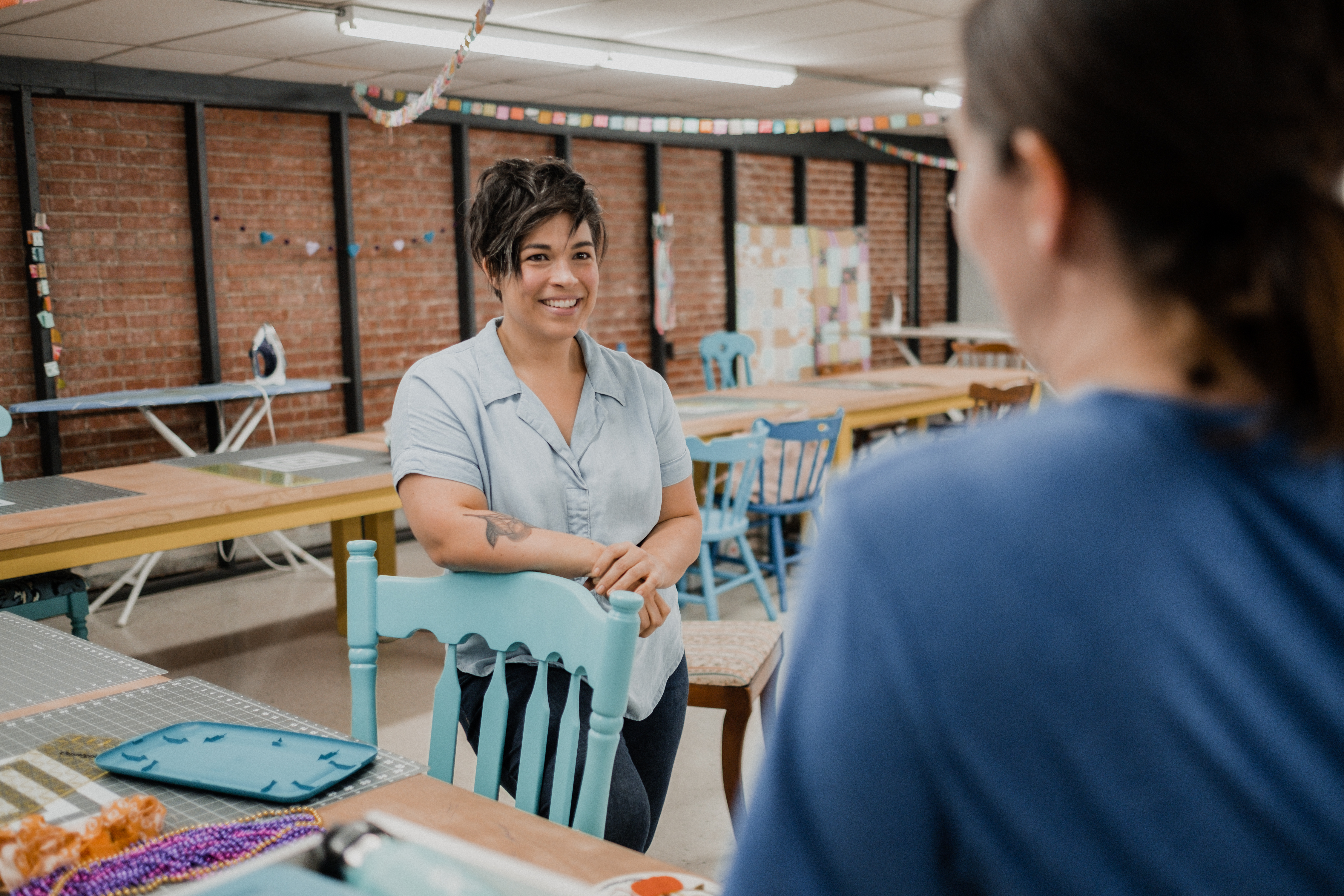 Photo: Ashel Parsons[/caption]
In a colorful loft makerspace above the new
Arch Street artist’s corridor
in downtown Searcy, Jo Ellis is building a community. She’s connecting people who want to create and people who need to create with opportunities to explore new skills together. Equal parts Christian philosopher, entrepreneur and advocate for the arts, Ellis has a deep conviction about the therapeutic value of the creative process. She views creativity as one way humanity bears the image of God. Her belief, shaped during three years as a missionary in Ireland, underpins the business model for her nonprofit, Make.Do.
Photo: Ashel Parsons[/caption]
In a colorful loft makerspace above the new
Arch Street artist’s corridor
in downtown Searcy, Jo Ellis is building a community. She’s connecting people who want to create and people who need to create with opportunities to explore new skills together. Equal parts Christian philosopher, entrepreneur and advocate for the arts, Ellis has a deep conviction about the therapeutic value of the creative process. She views creativity as one way humanity bears the image of God. Her belief, shaped during three years as a missionary in Ireland, underpins the business model for her nonprofit, Make.Do.
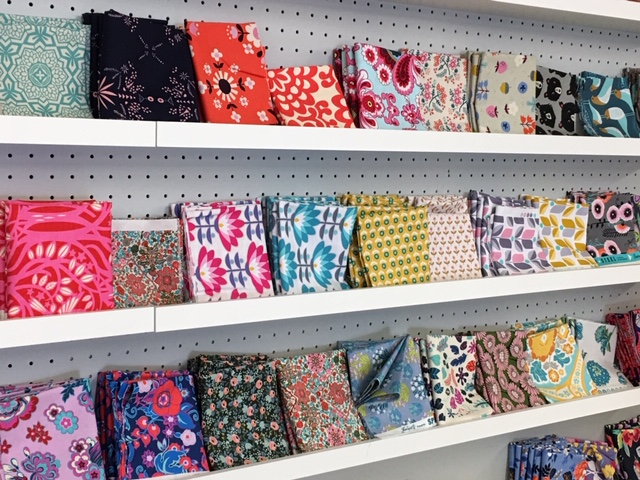 She sighed, her powerfully expressive face momentarily calm. “I’m careful how I talk about calling — but I know that I am a co-creator with God in this work,” she confides, relating Make.Do’s origins in a group of “difficult” girls who were her charges while she was doing mission work. They were the girls no one wanted. They challenged her and pushed the limits in every way.
To keep them occupied, they made pillow covers out of strips of fabric. Ellis recalled, “They went through the entire creative process: They were overwhelmed with the fabric choices, they discussed possibilities, narrowed them down and learned to use the sewing machines. They made mistakes; they had to use a seam ripper to tear out and start over. They were frustrated. They had to deal with imperfection.”
She sighed, her powerfully expressive face momentarily calm. “I’m careful how I talk about calling — but I know that I am a co-creator with God in this work,” she confides, relating Make.Do’s origins in a group of “difficult” girls who were her charges while she was doing mission work. They were the girls no one wanted. They challenged her and pushed the limits in every way.
To keep them occupied, they made pillow covers out of strips of fabric. Ellis recalled, “They went through the entire creative process: They were overwhelmed with the fabric choices, they discussed possibilities, narrowed them down and learned to use the sewing machines. They made mistakes; they had to use a seam ripper to tear out and start over. They were frustrated. They had to deal with imperfection.”
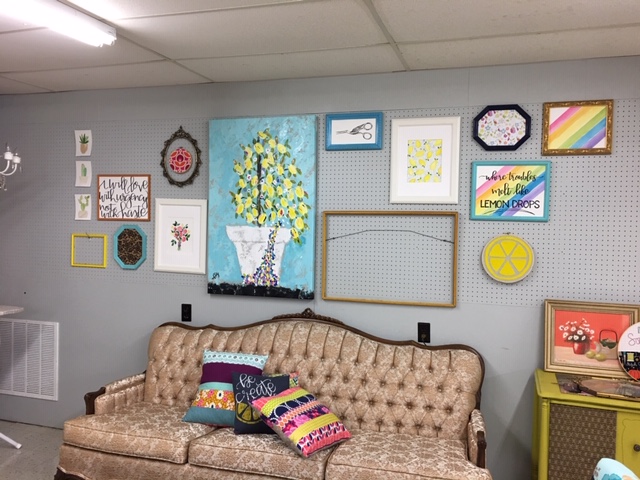 At the end of the day, they posted pictures of their finished projects on Facebook. She beamed at the memory. “We spent the entire evening watching people ‘like’ their projects and comment on them. In a single day, they went from being the girls that ‘no one ever wants’ to being creators of something others valued — and that value was reflected back onto them. It was the first time I understood the deep impact creativity has on our hearts.”
Not only does Ellis want to be able to offer classes for free to places like Jacob’s Place or Hope Cottage, but she wants to be able to offer an affordable place for community to gather. For now, Make.Do’s class fees are “pay what you can.” Most people pay the suggested fee, a few people pay more, and some people pay less.
At the end of the day, they posted pictures of their finished projects on Facebook. She beamed at the memory. “We spent the entire evening watching people ‘like’ their projects and comment on them. In a single day, they went from being the girls that ‘no one ever wants’ to being creators of something others valued — and that value was reflected back onto them. It was the first time I understood the deep impact creativity has on our hearts.”
Not only does Ellis want to be able to offer classes for free to places like Jacob’s Place or Hope Cottage, but she wants to be able to offer an affordable place for community to gather. For now, Make.Do’s class fees are “pay what you can.” Most people pay the suggested fee, a few people pay more, and some people pay less.
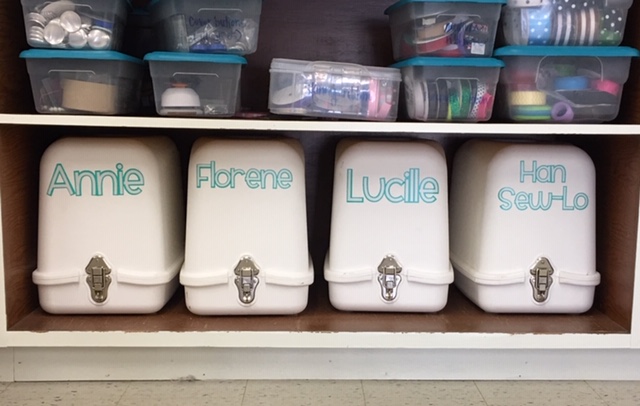 Clients may learn quilting, sewing, watercolor, hand lettering, embroidery, felting, knitting, cookie decorating, iris paper folding, macrame and more. Classes may last three to six weeks, but Ellis believes the social mission of Make.Do is best realized in six-week classes, which bring people who might not otherwise interact together over a longer period.
To some degree, all entrepreneurs are risk takers and, although Ellis has a missional purpose for Make.Do, she seems bold in the familiar entrepreneurial way. The numbers have to add up, even for a nonprofit. “It didn’t feel brave. Committing to one idea and having to stick with the same thing day in and day out might have been a challenge, but Make.Do allows me to constantly look forward to the next, new class.”
[gallery ids="921,919,917" type="rectangular"]
To market new offerings, she publishes a newsletter and relies heavily on social media. Since
Facebook
users can share content in a way Instagram users can’t, Facebook is Make.Do’s primary expansion tool. But 30-something Ellis is an uninhibited natural on
Instagram
live, where viewers have a window into her life as they visit her eclectic apartment while she emotes about her babies (her houseplants) or bond with her on the merits of her new side-shave hairstyle.
She’s on a related mission to lure each of us away from projecting an image of polished perfection. “When the front that others see is one of perfectly-edited photos and captions, we can forget how to relate to someone in the moment. Face to face, I can’t edit what I say to you as I do when we text. When we’re constantly smoothing out the roughness to perfect our communication, and when that is what we are always seeing from other people, we become grossly more aware of our own insecurities.”
[caption id="attachment_930" align="alignright" width="402"]
Clients may learn quilting, sewing, watercolor, hand lettering, embroidery, felting, knitting, cookie decorating, iris paper folding, macrame and more. Classes may last three to six weeks, but Ellis believes the social mission of Make.Do is best realized in six-week classes, which bring people who might not otherwise interact together over a longer period.
To some degree, all entrepreneurs are risk takers and, although Ellis has a missional purpose for Make.Do, she seems bold in the familiar entrepreneurial way. The numbers have to add up, even for a nonprofit. “It didn’t feel brave. Committing to one idea and having to stick with the same thing day in and day out might have been a challenge, but Make.Do allows me to constantly look forward to the next, new class.”
[gallery ids="921,919,917" type="rectangular"]
To market new offerings, she publishes a newsletter and relies heavily on social media. Since
Facebook
users can share content in a way Instagram users can’t, Facebook is Make.Do’s primary expansion tool. But 30-something Ellis is an uninhibited natural on
Instagram
live, where viewers have a window into her life as they visit her eclectic apartment while she emotes about her babies (her houseplants) or bond with her on the merits of her new side-shave hairstyle.
She’s on a related mission to lure each of us away from projecting an image of polished perfection. “When the front that others see is one of perfectly-edited photos and captions, we can forget how to relate to someone in the moment. Face to face, I can’t edit what I say to you as I do when we text. When we’re constantly smoothing out the roughness to perfect our communication, and when that is what we are always seeing from other people, we become grossly more aware of our own insecurities.”
[caption id="attachment_930" align="alignright" width="402"]
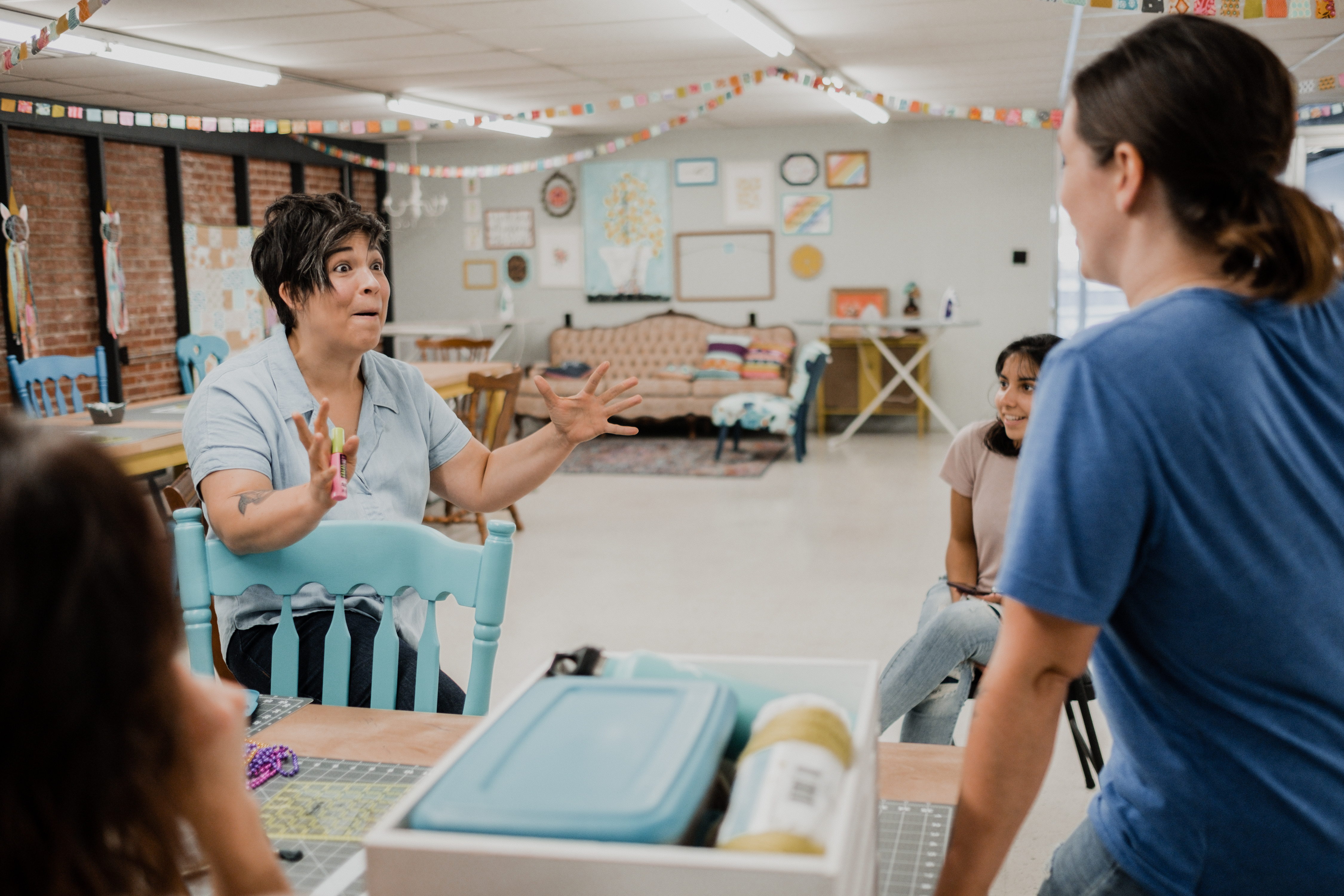 Photo: Ashel Parsons[/caption]
Ellis shares a promotional photo of her taken in her studio. She’s awkwardly, enthusiastically telling a story. Her face is contorted. It’s the kind of photograph most of us would delete rather than post. But she loves it. “The more vulnerable we are, the more we post things that aren’t perfect, the more we give others permission not to be perfect as well.”
She sees the creative process as a metaphor. “When we take random scraps of something and give it a purpose, over and over, it makes it easier for us to draw a parallel in our own lives. We can zoom out and see that random pointless events are being woven into something more purposeful and beautiful. And that point is amplified when it occurs in community.”
Comfortable authenticity is a goal worth pursuing, and it’s especially useful to anyone whose self-image has been weakened or fractured by life events. Ellis is currently working on fundraisers and is pursuing grant opportunities to provide scholarships to classes for those who might benefit. If you’d like to become involved, contact her through her
Facebook
page.
Know an entrepreneur whose story needs to be told? Email Patti Summers in the Waldron Center. psummers@harding.edu.
Photo: Ashel Parsons[/caption]
Ellis shares a promotional photo of her taken in her studio. She’s awkwardly, enthusiastically telling a story. Her face is contorted. It’s the kind of photograph most of us would delete rather than post. But she loves it. “The more vulnerable we are, the more we post things that aren’t perfect, the more we give others permission not to be perfect as well.”
She sees the creative process as a metaphor. “When we take random scraps of something and give it a purpose, over and over, it makes it easier for us to draw a parallel in our own lives. We can zoom out and see that random pointless events are being woven into something more purposeful and beautiful. And that point is amplified when it occurs in community.”
Comfortable authenticity is a goal worth pursuing, and it’s especially useful to anyone whose self-image has been weakened or fractured by life events. Ellis is currently working on fundraisers and is pursuing grant opportunities to provide scholarships to classes for those who might benefit. If you’d like to become involved, contact her through her
Facebook
page.
Know an entrepreneur whose story needs to be told? Email Patti Summers in the Waldron Center. psummers@harding.edu.